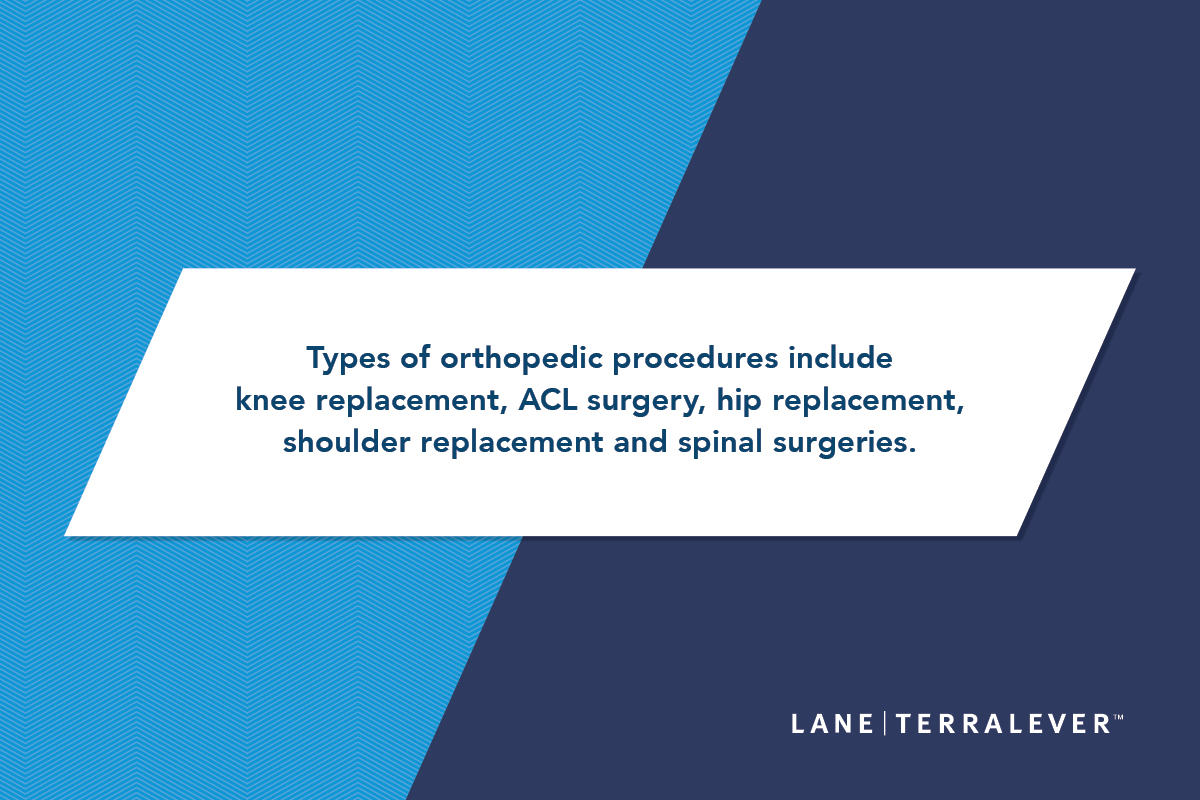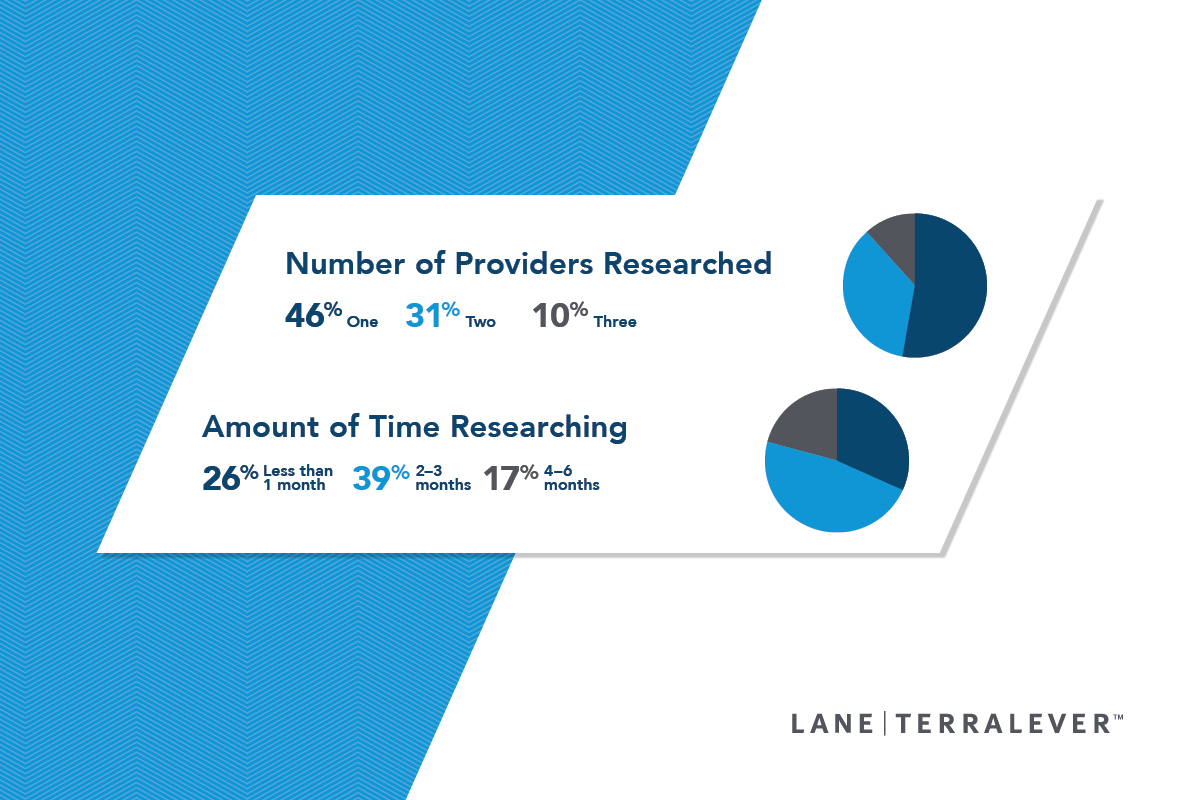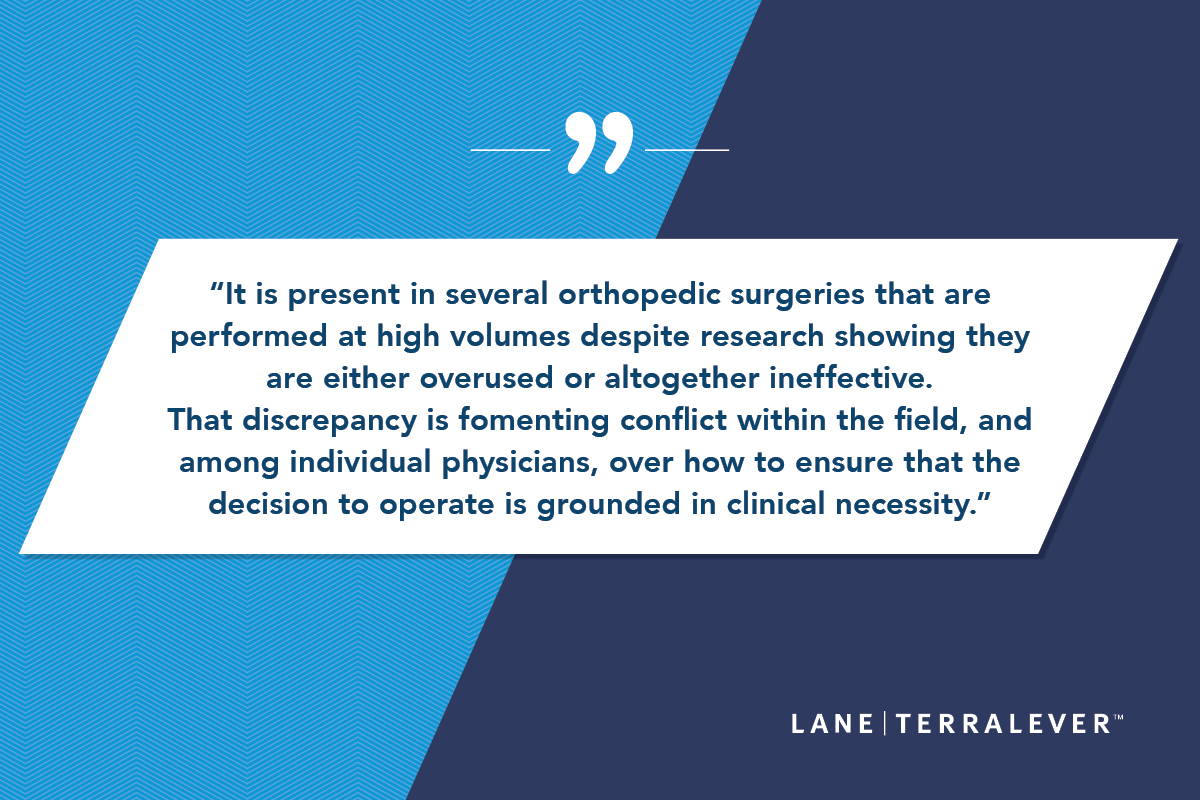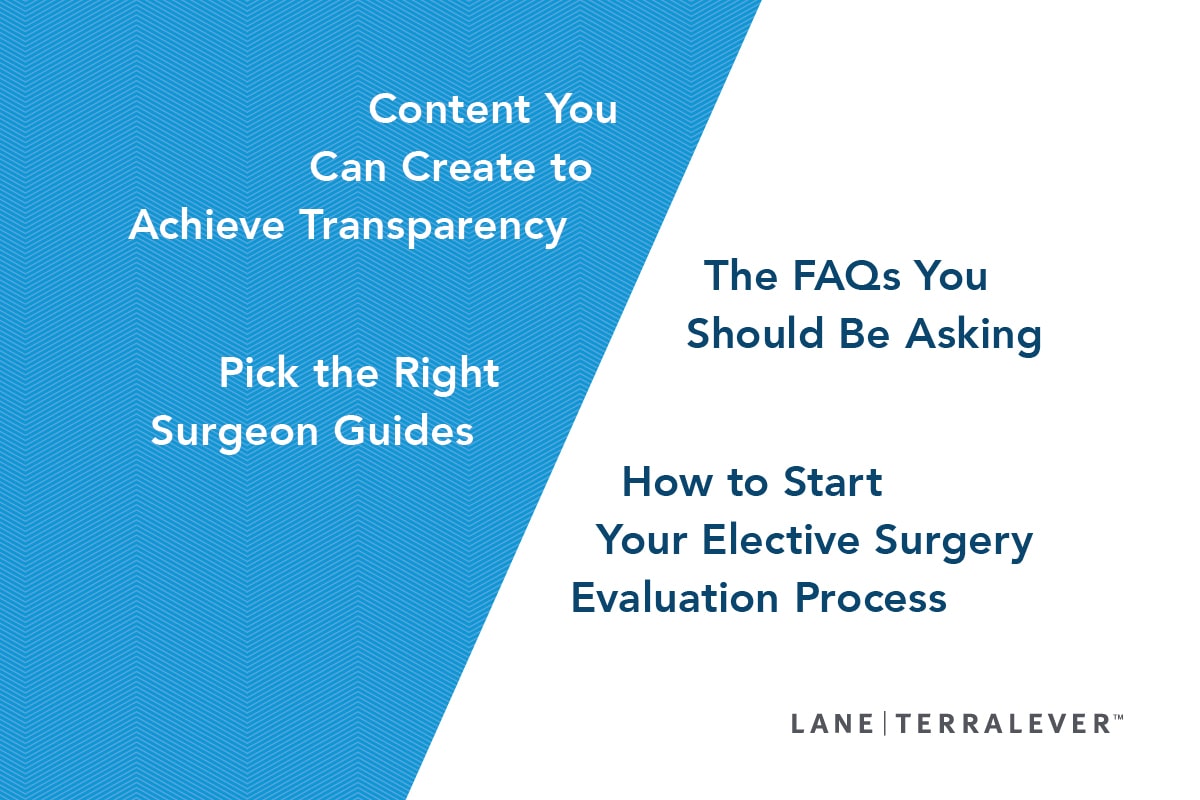Marketing Insights to Reach Those Considering Elective Orthopedic Surgery
In 2020, it is estimated that over 80% of elective orthopedic surgeries were postponed due to the pandemic, according to GlobalData. That means only one-sixth of orthopedic procedures were deemed “essential” and moved forward.
The pandemic placed restrictions on elective surgeries across all industries, to preserve hospital supplies, PPE and limit COVID-19 exposure within hospitals. Were there lasting effects of this momentary pause in elective healthcare?
Financially, the pause cost the industry over $22 billion. But when it comes to the patients themselves, could this time be an opportunity for renewal to attract new patients as elective surgeries are on the rise again?
LaneTerralever wanted to find the answer to this question so we conducted a 617-participant survey with our data partner, Convince & Convert. Our findings uncovered a glaring gap between patients and their providers, particularly in their communication and the overall patient experience. We explore this gap in our latest patient insights report.
Elective Orthopedic Surgery & the Patient Experience
The main defining feature of elective surgery is that these procedures can be scheduled in advance. Due to the use of the word “elective,” these kinds of surgeries may sound like they are optional, that is not always the case. Oftentimes it means the procedure should be done eventually.
Typically, the symptoms being treated by elective surgery are not life-threatening. Instead, the focus is mainly on improving the patient’s quality of life. In the orthopedic industry, that includes knee replacements, ACL surgery, hip replacements, and others.

From our survey, we found that elective orthopedic surgery was considered by 23% of respondents in the last three years. During the pandemic, only 33% of respondents postponed their procedure.
Aside from the pandemic, 20% of potential patients indicated that cost was a primary reason for not moving forward, though this number is much lower than other elective healthcare industries.
For providers looking to attract new patients, here are three insights and opportunities to apply to your marketing plan.
Use Pre-Op Time Wisely
One of the most unique findings from orthopedic respondents was that 30% did not move forward with their surgery because they no longer felt it was needed.
This tells us that long waiting times, whether because of the pandemic or other reasons, have the power to sway patients away from their elective orthopedic surgery. We can assume this is because their symptoms no longer bother them.
Of those who had an elective orthopedic surgery get postponed, 38% do not plan on rescheduling.
Click to Tweet
This also tells us that the pre-op time period is not being used wisely by providers. Thirty-nine percent (39%) of orthopedic respondents researched for two to three months, ultimately looking at only one or two providers (77%).

This is when orthopedic surgeons need to show their value: before a patient even walks into their office or during the time between postponing an appointment and rescheduling.
Remind your patients of the benefits of the procedure and the importance of going through with the surgery. Answer all their questions, provide educational materials and diffuse any concerns about safety or post-op care.
Don't Be That Pushy Doctor
While it is the provider’s job to make sure the patient has all the information they need to move forward with an elective surgery, that doesn’t mean the patient should be talked into one for the sake of making a conversion.
While it is important to remind patients of the benefits of potential orthopedic surgery, providers must walk a fine line between the true meaning of necessary.
Since 2000, the number of knee replacement surgeries has grown exponentially. Dr. Bart Ferket conducted a study and found that some recipients of knee replacement surgeries had “relatively mild symptoms and derived limited physical benefits.” He ultimately concluded that “surgeries on such patients were ‘economically unjustifiable.’”

From our survey, 40% of elective orthopedic respondents indicated significant improvement post-op, the highest of any procedure type. Yet it is important for providers to always remember that patients are people, not just numbers in a roster.
Sometimes the value is in telling a patient they do not actually need surgery at that time and retaining them as a customer for future needs. This will build trust and credibility as the patient knows their provider cares more for their well-being than profit margins.
Humanize The Provider
Offer full transparency to both current and prospective patients.
Consumer buying psychology tells us that these decisions are much more emotional than they are rational. Every provider should aim to make the selection and evaluation process less subjective and more objective for the patient.
Consider creating simple selection guides with topics like how to pick the right surgeon for you, questions patients don’t realize they are asking their providers, where to start in your elective procedure evaluation process, and much more.
Get Marketing Strategies for Elective Healthcare Providers
To learn more about these marketing insights and others for patients considering elective healthcare and how to improve the patient experience, download our latest patient insights report. We'll arm you with 5 strategies that will help you close the gap between what patients seek in their journey and what they actually experience.
Healthcare Digital Marketing Agency
LaneTerralever is a marketing agency that helps healthcare providers attract qualified patients and improve satisfaction with creative lead generation and seamless digital patient experiences. We're proud to have increased patient volume and satisfaction for providers, including HonorHealth, American Vision Partners, Landmark Recovery, NextCare Urgent Care, The Joint Chiropractic, Phoenix Children's, and Risas Dental and Braces.





